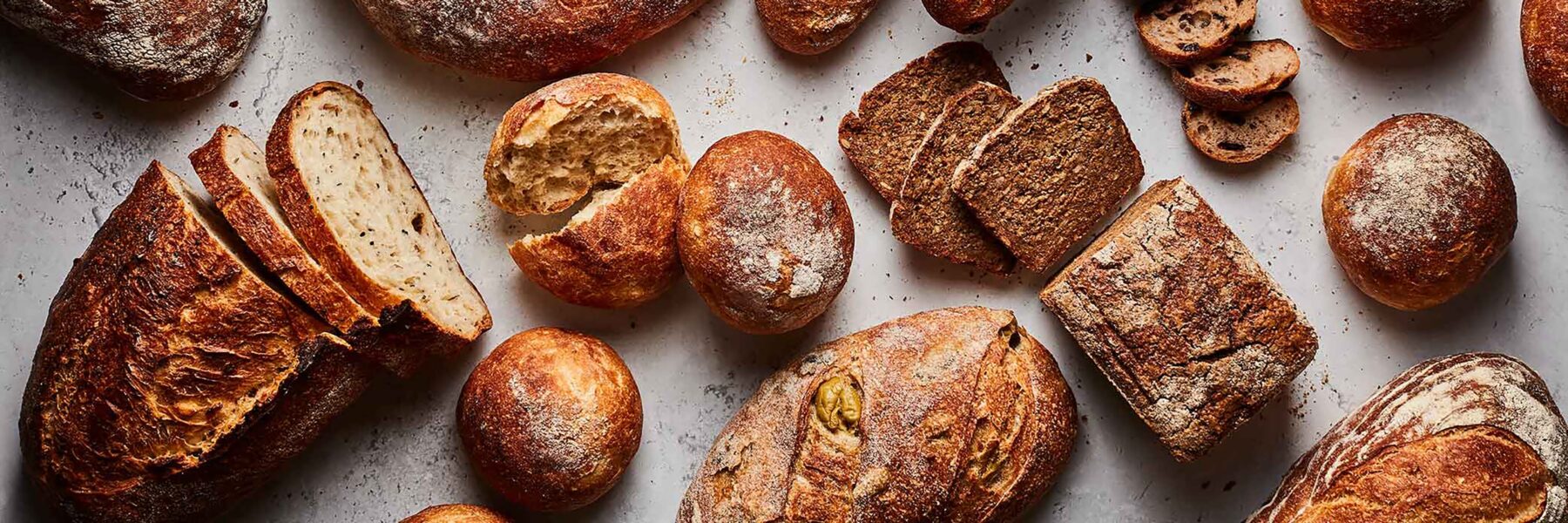
At The Bread Factory, we love sourdough for many reasons—the taste, the tradition, the technique… But it’s also about connection. Each loaf tells a story of grains, fermentation, and nature working together. You’ve heard us talked about our sourdough loaves, but what exactly is sourdough, and why does it stand out from the rest?
What does sourdough mean?
- From a science point of view: Sourdough bread is made by the fermentation of water and flour which naturally creates lactobacilli and ‘wild’ yeast (wild referring to natural yeasts in the flour).The lactic acid produced by the lactobacilli gives it a sourer taste and improved keeping qualities.
- From a baker’s point of view: A slower and more nourishing way of creating a variety of flavours that are delicious and appealing to look at.
How is it made?
Sourdough begins with 3 simple ingredients: flour, water and time. Mix equal parts flour to water and leave for 3-5 days. With time and warmth comes fermentation and the toolkit to making great bread – the starter. Depending on the flour you’ve used, the fermentation process creates a whole family of natural microbes – the main one being lactic acid bacteria (lactobacilli), and this is what gives sourdough it’s iconic sour flavour.
The quality of the grains used in sourdough baking is just as important as the technique.
The importance of grains:
At The Bread Factory, we are committed to using heritage and ancient grains that are not only rich in flavour but also packed with nutritional benefits. Here are a few you might come across in our breads:
- Spelt: An ancient grain that’s higher in protein and fibre than modern wheat, with a mild, slightly sweet flavour.
- Rye: Known for its deep, earthy flavour, rye is rich in fibre, B vitamins, and minerals like magnesium.
- Emmer: One of the oldest cultivated grains, emmer is packed with antioxidants, iron, and protein.
- Barley: Integral to soil health management. Highly nutritious, high levels of fibre and high in antioxidants, minerals and vitamins
Full fermentation:
Our starters are kept in warmer conditions (28-30°C) to ensure full fermentation, which enhances flavour and texture. This process breaks down complex starches and gluten, making the bread easier to digest. The natural microbes do most of the work, creating a prebiotic effect that supports gut health. Our slow fermentation also improves nutrient absorption and lowers the glycaemic index, making each loaf as wholesome as it is delicious.


Recent Comments